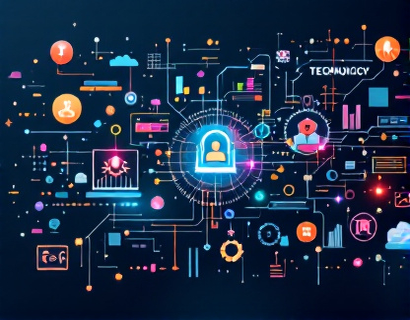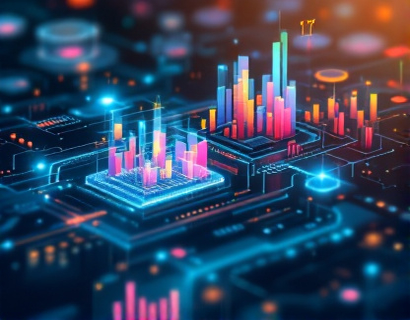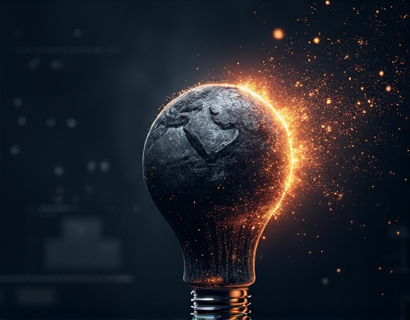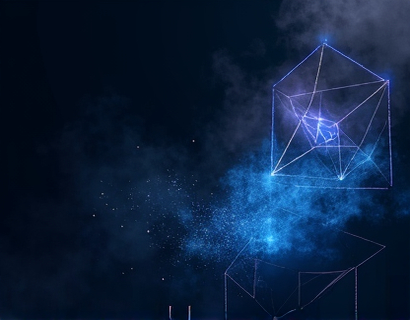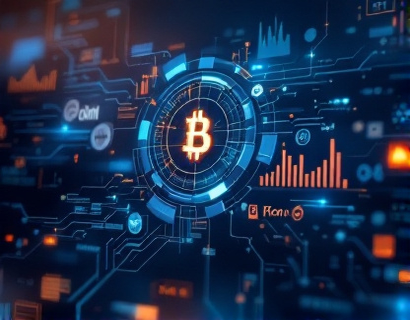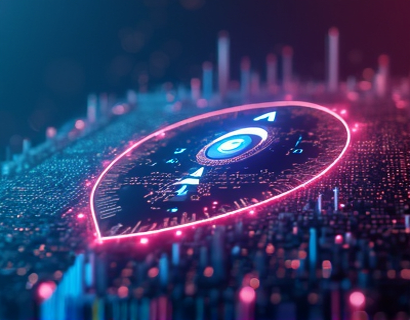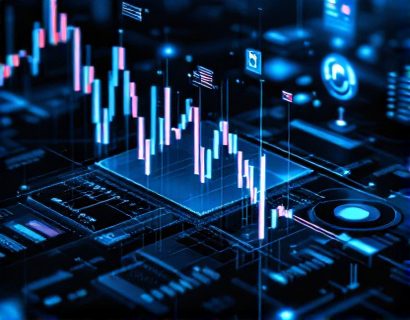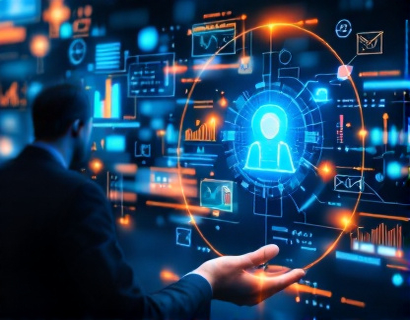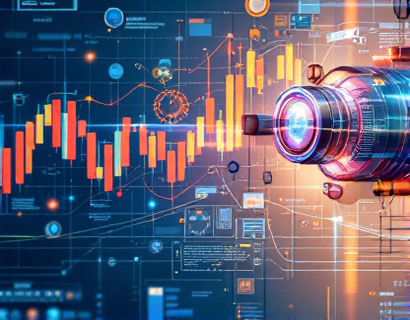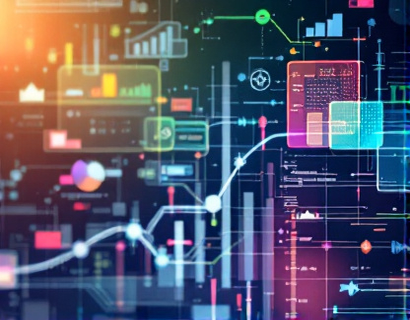Transforming App Ecosystems: The Synergy of Crypto and AI
The intersection of cryptocurrency and artificial intelligence (AI) is giving rise to a new era of digital innovation, fundamentally altering the app ecosystem. This convergence is not just about integrating two advanced technologies but about creating a paradigm shift in how we interact with digital services. The fusion of blockchain's decentralized and secure nature with AI's ability to learn and adapt is paving the way for next-generation applications that promise enhanced user experiences and unprecedented levels of connectivity.
Blockchain: The Backbone of Trust and Security
Blockchain technology, at its core, is a decentralized ledger that ensures transparency, immutability, and security. In the context of app ecosystems, blockchain serves as the foundational layer that enables trust without intermediaries. Each transaction or interaction within a blockchain network is recorded in a block, which is then linked to the previous block, forming a chain. This structure makes it nearly impossible to alter any data without consensus from the network, thereby ensuring the integrity of the system.
The decentralized nature of blockchain eliminates the need for central authorities, reducing the risk of single points of failure and enhancing resilience. For app developers, this means creating applications that are less vulnerable to hacks and data breaches. Users can interact with these apps with greater confidence, knowing that their data is secure and their transactions are verifiable.
AI: The Brain Behind the Scenes
Artificial intelligence, on the other hand, brings the element of intelligence and adaptability to the app ecosystem. AI algorithms can process vast amounts of data, identify patterns, and make predictions or decisions with minimal human intervention. In the context of applications, AI can enhance user experiences by personalizing content, optimizing performance, and providing intelligent assistance.
Machine learning, a subset of AI, allows apps to learn from user interactions and improve over time. For instance, recommendation systems in streaming services and e-commerce platforms use machine learning to suggest content or products based on user behavior. This not only enhances user satisfaction but also increases engagement and retention.
Combining Blockchain and AI: A Synergistic Force
The true power of integrating blockchain and AI lies in their complementary strengths. Blockchain provides the secure and transparent framework, while AI adds the intelligence and adaptability. Together, they create a robust ecosystem where applications can operate with high levels of trust and efficiency.
One of the key applications of this synergy is in identity verification and management. Traditional identity systems are centralized and often vulnerable to breaches. By using blockchain to store and manage digital identities, and AI to verify and authenticate users, the process becomes more secure and user-friendly. Users can control their identity data and share it selectively, reducing the risk of identity theft and enhancing privacy.
Decentralized Identifiers (DIDs)
Decentralized Identifiers (DIDs) are a prime example of how blockchain and AI can work together to revolutionize identity management. DIDs are unique identifiers stored on a blockchain, allowing users to own and manage their digital identities without relying on centralized authorities. AI can enhance DIDs by providing advanced authentication mechanisms, such as biometric verification, and by analyzing user behavior to detect and prevent fraudulent activities.
For developers, implementing DIDs in applications means building systems that are not only secure but also user-centric. Users gain more control over their personal data, and apps can leverage this data to offer more personalized and secure experiences.
Enhancing User Experiences through AI-Driven Personalization
Personalization is a critical aspect of modern applications, and the combination of blockchain and AI takes it to a whole new level. AI algorithms can analyze user data to understand preferences, behaviors, and needs, allowing apps to deliver highly personalized content and services. This level of personalization not only improves user satisfaction but also fosters deeper engagement and loyalty.
For instance, in the realm of finance, AI-driven personal financial advisors can analyze a user's financial data, market trends, and risk tolerance to provide tailored investment recommendations. When these systems are built on a blockchain, the data used for analysis is secure and transparent, ensuring that users trust the advice they receive.
Dynamic Content Delivery
AI can also optimize content delivery within applications by dynamically adjusting the user interface and experience based on real-time data. For example, an e-commerce app can use AI to analyze user browsing history, search queries, and purchase patterns to display products that are most relevant to the user. This not only enhances the shopping experience but also increases conversion rates.
Moreover, AI can predict user needs and proactively offer solutions. In a healthcare app, AI can monitor a user's health data and suggest preventive measures or alert users to potential health issues. The blockchain ensures that this data is securely stored and managed, giving users peace of mind.
Streamlining App Development and Maintenance
The integration of blockchain and AI also transforms the app development and maintenance processes. Smart contracts, self-executing contracts with the terms directly written into code, can automate various aspects of app management. These contracts can handle tasks such as payment processing, content distribution, and user authentication, reducing the need for intermediaries and lowering costs.
AI can further optimize this process by automating the development and testing phases. Machine learning models can predict potential bugs and performance issues, allowing developers to address them proactively. This not only speeds up the development cycle but also ensures higher quality and more reliable applications.
Decentralized Autonomous Organizations (DAOs)
Decentralized Autonomous Organizations (DAOs) are another innovative application of blockchain and AI in app ecosystems. DAOs are community-driven organizations governed by smart contracts, where decisions are made through decentralized voting mechanisms. AI can enhance DAOs by analyzing community data and trends to suggest optimal governance strategies and predict potential challenges.
For developers, DAOs offer a new model for collaboration and project management. By leveraging AI to analyze data and provide insights, DAOs can make more informed decisions, leading to more successful and sustainable projects.
Security and Privacy: A Dual Benefit
One of the most significant advantages of combining blockchain and AI in app ecosystems is the enhanced security and privacy they provide. Blockchain's immutable and transparent nature ensures that data cannot be tampered with, while AI can detect and prevent malicious activities in real-time.
For example, AI-powered security systems can monitor network traffic and user behavior to identify and mitigate threats such as DDoS attacks or unauthorized access. This proactive approach to security is crucial in an era where cyber threats are becoming increasingly sophisticated.
Privacy is another area where this combination shines. Blockchain can store user data in a way that is both secure and compliant with regulations like GDPR. AI can help manage and control data access, ensuring that users have full control over their personal information.
Challenges and Considerations
While the potential benefits are substantial, integrating blockchain and AI in app ecosystems also comes with challenges. One of the primary concerns is scalability. Blockchain networks, especially public ones, can face performance issues as the number of transactions increases. AI algorithms, while powerful, require significant computational resources, which can be a bottleneck for resource-constrained devices.
Another consideration is the regulatory landscape. The use of blockchain and AI in applications must comply with various laws and regulations, which can vary by region. Developers need to stay informed about these regulations to ensure their applications are legally compliant.
Interoperability
Interoperability is another challenge that needs to be addressed. For blockchain and AI to reach their full potential, different systems and platforms need to work seamlessly together. Standards and protocols that facilitate interoperability are essential to create a cohesive and integrated app ecosystem.
Collaboration among developers, organizations, and regulatory bodies is crucial to overcome these challenges. By working together, the industry can develop solutions that maximize the benefits of blockchain and AI while minimizing the drawbacks.
The Future of App Ecosystems
The convergence of blockchain and AI is not just a trend but a fundamental shift in how app ecosystems are designed and operated. As these technologies continue to evolve, we can expect to see even more innovative applications that push the boundaries of what is possible.
For tech enthusiasts and early adopters, this is an exciting time to be part of the digital landscape. The next-generation applications powered by blockchain and AI will not only enhance user experiences but also redefine the very nature of online interactions. By embracing these technologies, developers can create apps that are more secure, intelligent, and user-centric, ultimately transforming the digital world for the better.




